Search the Special Collections and Archives Portal
Search Results
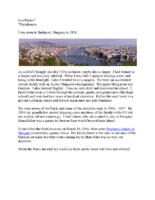
Biographical essay by Eva Peters, 2014
Date
Archival Collection
Description
Peters' essay describes her family's journey to escape the Nazis and Communism, remaining in Hungary until 1956. She and her husband were part of the Hungarian Freedom Fighters group, and escaped to Vienna, and then to the U.S.
Text
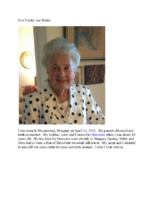
Biographical essay by Eva Weisz Vayda, 2014
Date
Archival Collection
Description
Vayda's essay describes her young-adulthood in Hungary, and being sent to Birkenau camp in 1944, and successive camps afterward. She came to the United States in 1956 with her husband and children.
Text
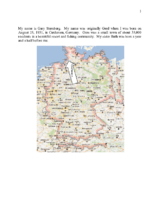
Biographical essay by Gary Sternberg, 2014
Date
Archival Collection
Description
Gary Sternberg grew up in Germany, witnessing anti-Semitic propaganda as early as age 7. He describes some of the experiences his father endured at a concentration camp, and his escape to China. He and his mother reunited with his father in Shanghai in 1940. They left Shanghai in 1948, eventually settling in Cleveland. He and his family came to Las Vegas in 1969.
Text
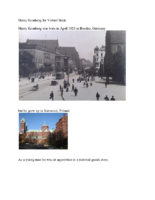
Biographical essay about Henry Kronberg, 2014
Date
Archival Collection
Description
Henry Kronberg was nineteen when the Nazis invaded Poland. He was sent to several labor camps, and liberated in 1945.
Text
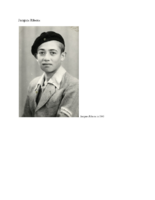
Biographical essay by Jacques Ribons, 2014
Date
Archival Collection
Description
Jacques Ribons describes his life during the Nazi occupation of Poland. During the liquidation of the Jewish ghetto, his family decided to turn themselves in to the Germans. They were sent to a prison and separated. He and his brother survived and went to France with the OSE, and came to the United States in 1947.
Text
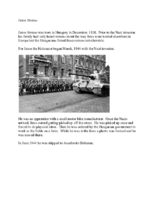
Biographical essay about Janos Strauss, 2014
Date
Archival Collection
Description
Janos Strauss was picked up by the Nazis at age 15, but lied and said he was 17, which saved his life. He was liberated during a transport in 1945.
Text
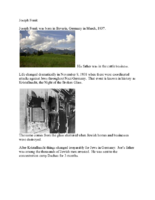
Biographical essay about Joseph Frank, 2014
Date
Archival Collection
Description
Joe Frank's family lived in Germany during Kristallnacht, and was able to escape to England in 1939. They came to the United States in 1940.
Text

Biographical essay about Judd Nissanov, 2014
Date
Archival Collection
Description
Judd Nissanov's journey escaping the Nazis as part of the Polish army took him to Persia, Jordan, Palestine and Egypt.
Text
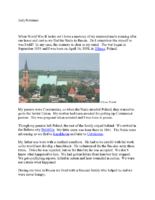
Biographical essay by Judy Newman, 2014
Date
Archival Collection
Description
Judy Newman describes her early life in an orphanage in Poland, and went to Israel in the 1950s, where she met her husband.
Text
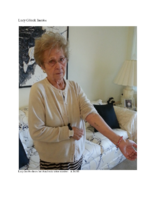
Biographical essay by Lucy Gliuck Jacobs, 2014
Date
Archival Collection
Description
Lucy Gliuck Jacobs describes her time in Auschwitz, where her parents perished. She was the only survivor of her family of seven children.
Text
